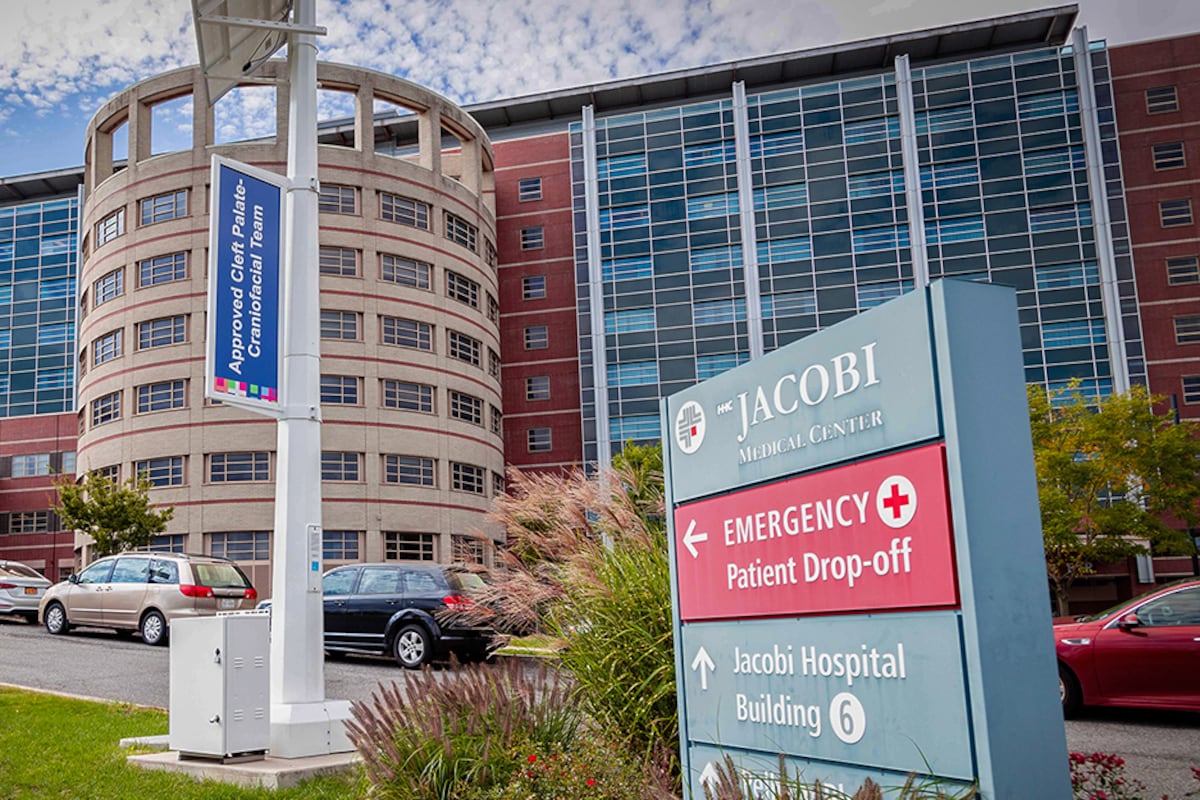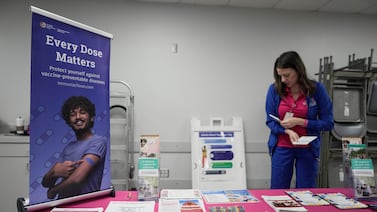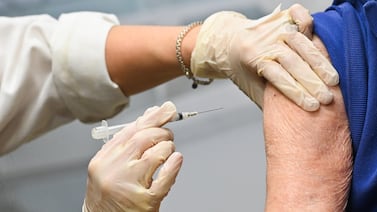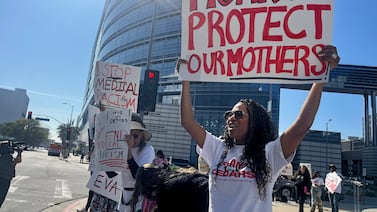Public health, explained: Sign up to receive Healthbeat’s free New York City newsletter here.
On Monday, the physicians’ union reached a tentative contract deal to avoid a strike. Read the update here.
Dr. Heather Irobunda, an OB-GYN in the Bronx, has committed to caring for the community that raised her.
But in nearly five years as a physician at North Central Bronx Hospital, a NYC Health + Hospitals facility, difficult working conditions have tested her dedication. Irobunda and her colleagues work long hours, sometimes see double- and tripled-booked patients, and contend with systemwide shortened appointment times, she said.
“I just don’t understand how we’re supposed to provide excellent patient care if we’re not given all the tools to do so,” she told Healthbeat.
Amid contentious contract negotiations, Irobunda is one of nearly 1,000 physicians in the Bronx, Brooklyn, and Queens prepared to walk off the job on Jan. 21. The work stoppage would be the largest strike of attending physicians in city history, according to their union, Doctors Council SEIU. The strike would impact four safety-net hospitals: South Brooklyn Health, Queens Hospital Center, North Central Bronx Hospital, and Jacobi Medical Center, also in the Bronx.
NYC Health + Hospitals has not responded to a request for comment.
Doctors Council has called for a contract that provides better pay and benefits to physicians, allowing hospitals to retain and recruit staff. Contract negotiations for the physicians have dragged on since 2023, according to the union.
Doctors Council had initially planned to strike on Monday, but agreed to postpone the action by a week as negotiations continue. In a letter last week, Mayor Eric Adams urged the union to return to the bargaining table, raising concerns about disruptions to health care services “as we confront freezing temperatures and winter respiratory illnesses.”
Council Member Carmen De La Rosa, who chairs the Committee on Civil Service and Labor, described the potential strike as “extremely concerning.” She and other council members will hold a hearing on the strike and conditions at municipal hospitals on Friday afternoon.
“If we have a full strike, having 1,000 doctors walk out of four facilities across the city is going to have a huge impact, especially for marginalized New Yorkers that already are suffering from a lot of the social determinants of health,” she said. “These facilities exist in communities that were majorly impacted by Covid, that are majorly impacted by things like high asthma rates, high diabetes, cardiac issues, cancer.”
The physicians poised to strike are employed through private affiliates of NYC Health + Hospitals, including Mount Sinai Health System and the Physician Affiliate Group of New York. Their employment designation allows them to strike, unlike other city employees, who are prohibited from striking under the Taylor Law. Last month, the city struck a contract deal with 500 physicians whom it directly employs.
Physician strikes are rare in New York City. In May 2023, the first doctors’ strike in more than three decades occurred at Elmhurst Hospital Center, a NYC Health + Hospitals facility in Queens, when more than 100 resident physicians stopped work for three days, demanding wage increases and other benefits.
In recent years, increased patient volumes have strained the municipal health care system. In fiscal year 2024, NYC Health + Hospitals added more than 15,000 primary care patients over the previous year, according to the Mayor’s Management Report published in September. Enrollment in NYC Care, a health care access program serving uninsured New Yorkers, grew by 20% in that period, in part due to the influx of migrants, according to the report.
As a result, wait times for patient visits have increased. From fiscal 2023 to fiscal 2024, the number of calendar days to the third next available new appointment — a measure of health system access — was 20 days for adult medicine, an 8-day increase, and 23 days for pediatric medicine, a 10-day increase, according to the report.
Last summer, to address increased patient volume, the hospital system directed doctors to cut the length of patient visits in half, from 40 minutes to 20 minutes.
For Irobunda, that has meant less time to spend with patients — and less time to do surgical procedures, like inserting an intrauterine device or doing a biopsy. Most of her appointments are 20 minutes long, with 30-minute slots for some procedures, she said.
She worries that her patients don’t always have enough time to give a thorough medical history or to describe their concerns. In addition to the time crunch, she said, her hospital is short-staffed, increasingly reliant on temporary health care workers, and struggles to offer specialized consulting services to patients.
Irobunda and her colleagues don’t want to strike, she said, but they haven’t received adequate assurances that conditions will improve.
“We also want to make sure that our patients have safe hospitals to go to, and there has been no sign that we’re going in that direction,” she said.
Council Member Mercedes Narcisse, chair of the Committee on Hospitals, represents a district in southeastern Brooklyn with no hospital. Nearby South Brooklyn Hospital, which would be impacted by the planned strike, serves many of her constituents, she said.
Narcisse, a registered nurse, emphasized that the city can’t afford a doctors’ strike.
“Oh my god, we don’t want that to happen,” she said. “They are the frontline for us, serving the community. And the safety of the patient is very important. We cannot have a strike.”
Eliza Fawcett is a reporter covering public health in New York City for Healthbeat. Contact Eliza at efawcett@healthbeat.org.







